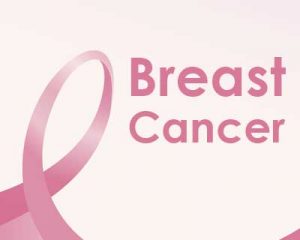- Home
- Editorial
- News
- Practice Guidelines
- Anesthesiology Guidelines
- Cancer Guidelines
- Cardiac Sciences Guidelines
- Critical Care Guidelines
- Dentistry Guidelines
- Dermatology Guidelines
- Diabetes and Endo Guidelines
- Diagnostics Guidelines
- ENT Guidelines
- Featured Practice Guidelines
- Gastroenterology Guidelines
- Geriatrics Guidelines
- Medicine Guidelines
- Nephrology Guidelines
- Neurosciences Guidelines
- Obs and Gynae Guidelines
- Ophthalmology Guidelines
- Orthopaedics Guidelines
- Paediatrics Guidelines
- Psychiatry Guidelines
- Pulmonology Guidelines
- Radiology Guidelines
- Surgery Guidelines
- Urology Guidelines
Bone drug could prevent breast cancer in high risk women

Sydney : A drug already used to tackle bone loss in old age could prevent breast cancer in women who are at very high risk of developing the disease, new research has found.
People who carry a faulty BRCA1 gene are at high risk of developing aggressive breast cancer.
Currently many women with the gene mutation choose surgical removal of their breast tissue and ovaries to reduce their chance of developing breast and ovarian cancer.
By pinpointing the cells that give rise to breast cancers in women who have inherited a faulty version of the BRCA1 gene, the researchers from Australia’s Walter and Eliza Hall Institute of Medical Research identified that the drug denosumab may have the potential to prevent breast cancer from developing.
“This is potentially a very important discovery for women who carry a faulty BRCA1 gene, who have few other options,” said one of the researchers Geoff Lindeman.
The discovery had its basis in more than a decade of investigations of breast stem cell function, professor Jane Visvader said.
“By thoroughly dissecting how normal breast tissue develops, we have been able to pinpoint the precise cells that are the culprits in cancer formation,” she said. “We were excited to discover that these pre-cancerous cells could be identified by a marker protein called RANK,” Emma Nolan, a PhD student at the institute, said.
The discovery of RANK as a marker of cancer precursors was an important breakthrough because inhibitors of the RANK signalling pathway were already in clinical use, Lindeman explained. “An inhibitor called denosumab is already used in the clinic to treat osteoporosis and breast cancer that has spread to the bone,” he said.
The research team showed that RANK inhibition switched off cell growth in breast tissue from women with a faulty BRCA1 gene and curtailed breast cancer development in laboratory models.
The findings were published in the journal Nature Medicine.
If confirmed in clinical studies, this would provide a non-surgical option to prevent breast cancer in women with elevated genetic risk. “To progress this work, denosumab would need to be formally tested in clinical trials in this setting as it is not approved for breast cancer prevention,” Lindeman pointed out.
“It is very exciting to think that we may be on the path to the ‘holy grail’ of cancer research, devising a way to prevent this type of breast cancer in women at high genetic risk,” Visvader said.

Disclaimer: This site is primarily intended for healthcare professionals. Any content/information on this website does not replace the advice of medical and/or health professionals and should not be construed as medical/diagnostic advice/endorsement or prescription. Use of this site is subject to our terms of use, privacy policy, advertisement policy. © 2020 Minerva Medical Treatment Pvt Ltd